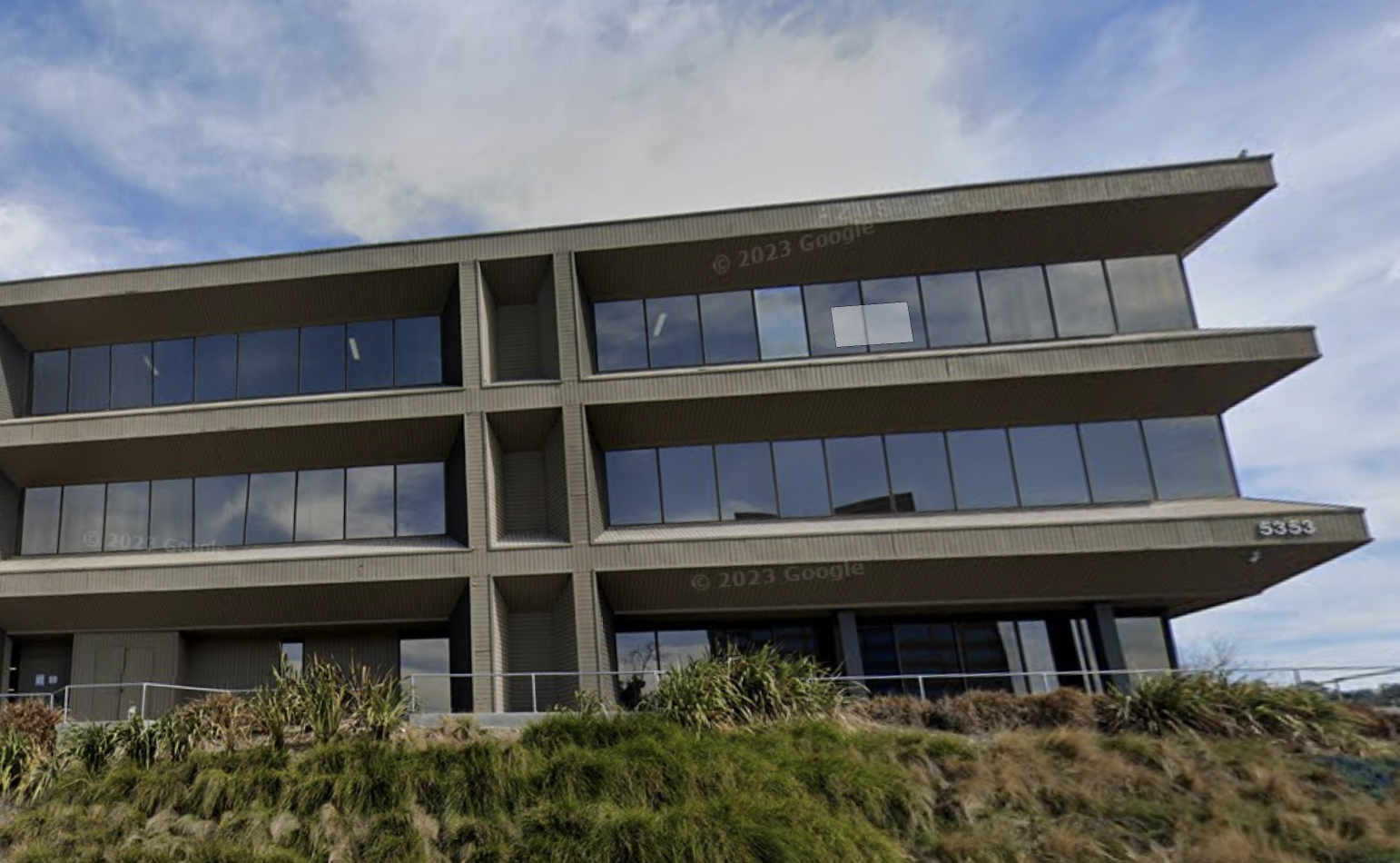Psychiatric Centers At San Diego - Chesapeake Dr

Overview
Psychiatric Centers At San Diego - Chesapeake Dr is an substance abuse treatment center that provides outpatient detoxification, for men and women from 18+ years of age. As part of their special programs, Psychiatric Centers At San Diego - Chesapeake Dr treats pregnant/postpartum women and clients who have experienced trauma. To help patients achieve sobriety, Psychiatric Centers At San Diego - Chesapeake Dr provides intake assessments. Afterward, patients receive individual psychotherapy, group counseling, and family counseling during treatment. Psychiatric Centers At San Diego - Chesapeake Dr is located in San Diego, California, providing treatment for people in San Diego County, accepting cash or self-payment, federal military insurance (e.g., tricare), and medicare.
Psychiatric Centers At San Diego - Chesapeake Dr at a Glance
Payment Options
- Cash or self-payment
- Federal military insurance (e.g., TRICARE)
- Medicare
- Private health insurance
- Aetna
Assessments
- Comprehensive mental health assessment
- Comprehensive substance use assessment
Age Groups
- Children/adolescents
- Young adults
- Adults
Operation
- Private for-profit organization
Treatment At Psychiatric Centers At San Diego - Chesapeake Dr

Conditions Treated
Mental health treatment:
Mental health facilities offer a safe space for individuals to get specialized care. Trained experts create personal plans using therapies, possibly including medication. The goal is to help individuals cope better and lead fulfilling lives, with constant support and a community feel.
Alcoholism:
Alcohol addiction is a condition where someone feels a strong and uncontrollable urge to drink alcohol, often leading to negative effects on their health, relationships, and daily life. To assist individuals grappling with alcohol addiction, various strategies exist. Initially, supervised detoxification may be necessary to ensure a safe cessation of alcohol consumption. Following this, counseling and therapy play a crucial role in addressing the psychological facets of the addiction. Engaging in support groups can also offer a sense of camaraderie and comprehension.
Opioid Addiction:
Opioid rehabilitation centers focus on aiding individuals in overcoming opioid addiction, whether stemming from illegal substances like heroin or prescription medications like oxycodone. These facilities provide a comprehensive approach that combines medical detoxification and ongoing physical care with intensive therapy to address the root causes of addiction.
Substance use treatment:
Substance use rehabilitation is a comprehensive treatment approach designed to assist individuals struggling with addiction to drugs or alcohol. This form of rehabilitation addresses both the physical dependency, often starting with detoxification, and the psychological triggers, using various therapeutic methods. The objective is to empower individuals to achieve and maintain sobriety, while equipping them with the tools and coping strategies needed to reintegrate into society and lead a substance-free life.
Co-occurring Disorders:
Dual-diagnosis rehabs are usually the appropriate solution to treat co-occurring mental health and substance abuse disorders. These facilities typically employ medical and behavioral experts who use a range of interventions, together with the right healing environment, for you to achieve and sustain long-term recovery. Treatment usually includes evidence-based therapies (like cognitive behavioral therapy), recovery support meetings, 12-step facilitation, psychoeducation, skills training, and group therapy.

Levels Of Care
Intensive outpatient treatment:
Intensive outpatient programs (IOPs) support clients in maintaining long-term sobriety by providing tailored, high-quality care that adapts to their changing requirements. Clients participate in several treatment sessions each week, typically receiving between nine to 20 hours of outpatient care weekly. As clients achieve stability, the treatment frequency and intensity gradually diminish. Many intensive outpatient rehabilitation centers provide a diverse range of services, such as addiction counseling, training in life skills geared towards recovery, and the option for medication-assisted treatment (MAT). Additionally, evidence-based complementary therapies are frequently integrated into the program.
Detoxification:
Detoxification (detox) is the process of clearing the body of drugs or alcohol that an individual has consumed. The purpose of detox is to safely manage withdrawal symptoms when someone stops taking drugs or alcohol. It denotes a clearing of toxins from the body of the patient who is acutely intoxicated and/or dependent on substances of abuse. Detoxification seeks to minimize the physical harm caused by the abuse of substances.
Aftercare:
Aftercare treatment refers to the continued support and care that individuals receive following the completion of their primary treatment program for substance abuse or addiction. This phase aims to aid individuals in maintaining their sobriety, improving personal skills and coping strategies, and integrating back into society. Aftercare can include ongoing therapy, support group meetings, education, and monitoring, which are crucial for preventing relapse and promoting long-term recovery. Through a combination of community support, accountability, and personal development, aftercare provides a structured pathway for individuals to continue their recovery journey in a supportive environment.
Outpatient:
Outpatient treatment in a rehab center offers structured therapeutic services for individuals seeking recovery without full-time residential admission. Unlike intensive outpatient programs, which demand more frequent and longer sessions, standard outpatient care provides a more flexible approach, allowing participants to maintain daily activities and responsibilities while undergoing treatment.

Treatment Modalities
Individual psychotherapy:
Individual therapy, often referred to as psychotherapy or counseling, is a one-on-one therapeutic interaction between a trained therapist and a client. It provides a confidential space for individuals to explore their feelings, beliefs, and behaviors, working through challenging memories, experiences, or emotions. The therapist facilitates self-awareness, promotes personal growth and insight, and offers coping strategies to manage specific issues like stress, anxiety, depression, and other life challenges. The ultimate goal is to improve the individual's mental well-being and enhance their overall quality of life.
Group counseling:
Group Therapy is a therapeutic space where individuals battling addiction come together to share experiences, gain insights, and support one another on their journey to recovery. Facilitated by trained professionals, this setting fosters communal healing and empowers participants to overcome the challenges of addiction through collective strength and understanding.
Family counseling:
Family Counseling is a therapeutic approach that seeks to address and resolve conflicts, improve communication, and strengthen relationships within the family unit. By providing a safe space for family members to express their feelings and concerns, a trained counselor facilitates understanding and collaboration among members, promoting healthier dynamics and enhancing overall family well-being.
Marital/couples counseling:
Whether a marriage or other committed relationship, an intimate partnership is one of the most important aspects of a person's life. Drug and alcohol addiction affects both members of a couple in deep and meaningful ways, as does rehab and recovery. Couples therapy and other couples-focused treatment programs are significant parts of exploring triggers of addiction, as well as learning how to build healthy patterns to support ongoing sobriety.
Life Skills:
Life skills training equips individuals with essential competencies, such as time management, career planning, financial literacy, and effective communication, to navigate the challenges of daily life. These skills are foundational to achieving not just sobriety but a thriving, fulfilling life post-addiction. Such training lays the groundwork for sustainable success and long-term recovery.
Cognitive Behavioral Therapy:
Cognitive Behavioral Therapy (CBT) is a evidence-based psychotherapeutic approach that aims to address dysfunctional emotions, behaviors, and cognitions through a goal-oriented, systematic process. It involves identifying and challenging negative thought patterns and beliefs and replacing them with more constructive ways of thinking and behaving. CBT is commonly used to treat a variety of mental health disorders, including depression, anxiety, and phobias.
Dialectical Behavior Therapy:
Dialectical Behavior Therapy (DBT) is an evolved version of Cognitive Behavioral Therapy (CBT) that aims to assist individuals in recognizing and influencing the interplay among their thoughts, emotions, and actions. DBT is particularly beneficial for those grappling with self-harming behaviors, including self-inflicted injuries like cutting, as well as suicidal ideations or tendencies. Clinically, it has shown effectiveness in managing intense emotions and conditions such as Borderline Personality Disorder.
Trauma-related counseling:
Trauma therapy addresses the underlying emotional and psychological wounds that may contribute to an individual's substance abuse. Through a combination of psychotherapy and coping strategies, individuals are aided in processing past traumatic experiences, understanding the impact of trauma on their current behavior, and developing healthier coping mechanisms. This holistic approach fosters resilience, aids in the resolution of trauma, and is fundamental in supporting individuals on their path toward sustained recovery from addiction.
Fitness Therapy:
Fitness Therapy in addiction treatment is an integrated approach that melds physical wellness with mental health recovery. By incorporating regular exercise and physical activity into the recovery process, individuals are equipped with a wholesome routine that encourages not only a healthy body but also a healthy mind. Through a structured fitness regimen, individuals learn to replace substance-abusing behaviors with positive habits that promote self-discipline, stress reduction, and a strong sense of self-efficacy. Over time, engaging in fitness therapy fosters a positive outlet for coping with triggers and cravings, rendering a robust foundation for lasting recovery.
Eye Movement Desensitization and Reprocessing therapy:
Eye Movement Desensitization and Reprocessing Therapy (EMDR) is a psychotherapeutic technique aimed at alleviating distress associated with traumatic memories. It involves a structured eight-phase approach, during which the client recalls distressing images while receiving bilateral sensory input, such as side-to-side eye movements. Through this process, EMDR aids in the reprocessing of traumatic memories, potentially rendering them less distressing and allowing for improved mental health and functioning.
Holistic Treatment:
A holistic approach encompasses a "whole person" perspective in treatment, emphasizing the interconnectedness of mental, physical, and spiritual health. At its core, holistic therapy believes in the seamless integration of an individual's body, mind, emotions, and spirit. In the context of addiction recovery, this approach ensures that the entire person is catered to, rather than isolating a specific symptom or behavior. Holistic treatments aim to enhance the individual's complete well-being instead of merely addressing isolated issues.
Religious Programs:
Religious programs in rehab integrate spiritual and faith-based practices with traditional therapeutic techniques to aid individuals in their recovery journey. Recognizing the profound impact that faith can have on healing, these programs provide an environment where patients can explore and strengthen their spiritual beliefs while addressing their addiction challenges. Rooted in various religious teachings and traditions, participants often engage in activities such as prayer, meditation, scripture study, and pastoral counseling. For many, this holistic approach offers an added layer of support, fostering deeper personal reflection and connection to a higher power.
Ancillary Services
Languages
- Spanish
Special Programs
- Pregnant/postpartum women
- Clients who have experienced trauma

Additional Locations
Contact Information
DISCLAIMER: The facility name, logo and brand are the property and registered trademarks of Psychiatric Centers At San Diego - Chesapeake Dr, and are being used for identification and informational purposes only. Use of these names, logos and brands shall not imply endorsement. BetterAddictionCare.com is not affiliated with or sponsored by Psychiatric Centers At San Diego - Chesapeake Dr.



